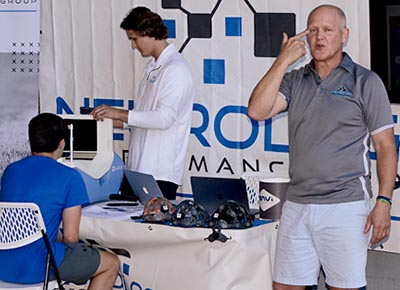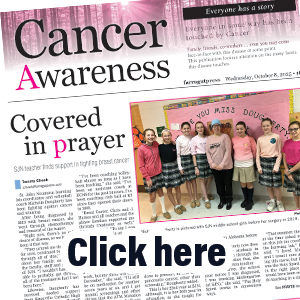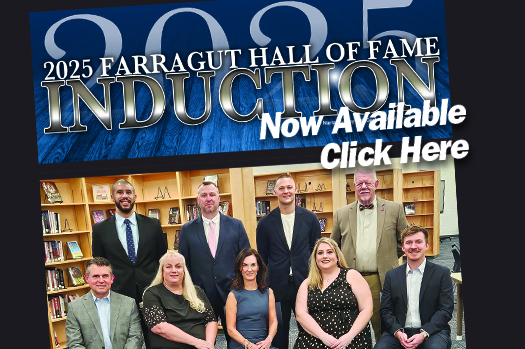Quick, reliable concussion evaluation available for area sports: Slaughter

The turning point for Mark Slaughter, owner of Neurological Performance Group, 123 Center Park Drive in West Knoxville, came when “I was contacted by a technology company that was doing brain activity measurements and talking about concussions,” he said during a brief address about his company’s groundbreaking use of this technology to football youth camp participants and their parents, which followed the conclusion of a camp at Farragut High School’s Bill Clabo Field in June.
From that, “Me and a neurosurgeon at University of Tennessee Medical Center (Dr. Todd Abel) … he was a neurosurgeon in Iraq (U.S. Air Force) … went to a brain summit meeting,” Slaughter said.
“… The last person to present was a guy named Mark Hilinski,” he added. “… Tyler was their son, and he went to Washington State (University) and played quarterback.”
However, “He took his life in 2018,” the NPG owner said about Tyler. “In his autopsy … they found out that that he had a disease called (chronic traumatic encephalopathy).
“Mark came from a background of technology out in California, and he always thought that the answers in the future about concussions and mental health could be found — the best opportunity for a solution — is going to be in technology,” Slaughter added.
Having won an ESPN network “ESPY” award “for mental health awareness,” Hilinski’s younger son, Ryan Hilinski, was a quarterback at the University of South Carolina.
About a week after receiving his ESPY, Hilinski saw his son go up against the UT Volunteers, giving Slaughter a chance to meet him.
“Working my back channels, I had breakfast with Mark Hilinski and Dr. Abel that Saturday morning” before the football game,” Slaughter said.
Putting their minds and resources together, Slaughter and Abel “decided to go after the disconnect that exists in concussion research, concussion diagnosis, concussion care,” he said about forming NPG.
Slaughter said athletes often, it not most of the time, are treated for concussions “by someone who’s not a specialist” with brain injuries.
“We’ve been building the infrastructure of this company for two years,” he added.
Moreover, “There’s nothing in the world like what we’ve done,” Slaughter said about a process using every student-athlete’s healthy brain “as a baseline” from which to measure when that same given athlete takes a serious blow to the head — and a concussion is considered a possibility.
With a recently FDA-approved eye box, a closer examination of how the eyes react to light, movement and how each eye responds in general can indicate the presence — and degree — of a concussion.
If a given school and/or school system were to implement this system, a portable brain activity scanner would be available for sporting contests to give a quick and accurate reading, according to Slaughter. On the other hand, a concussion could be ruled out quicker based on a shaken-up player’s healthy brain baseline as compared to measurements on the sideline after he took that hard blow to the head. That athlete, therefore, could safely return to action.
This technology, Slaughter said, also allows a much more accurate evaluation of the brain-healing process of a concussed player. An App keeps track of all brain and eye measurements of a given player that specialists worldwide could tap into.
“No one is bringing this technology to the field like NPG.”


